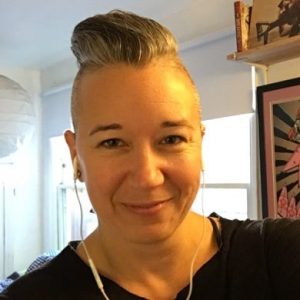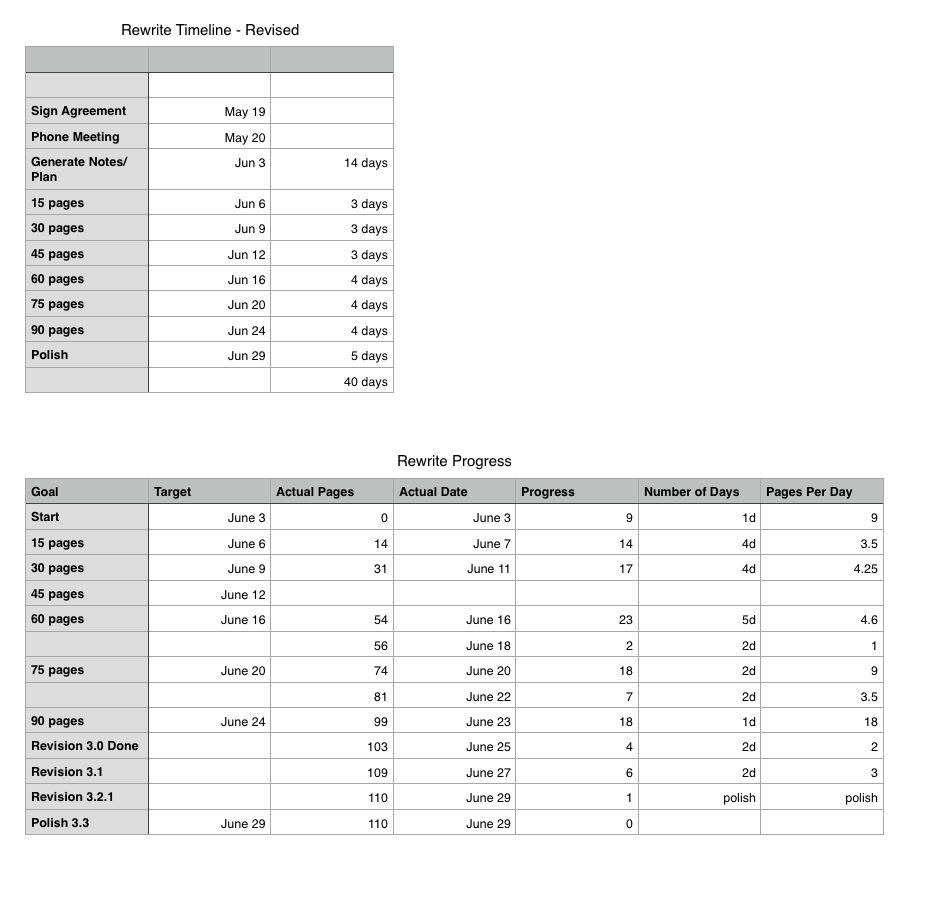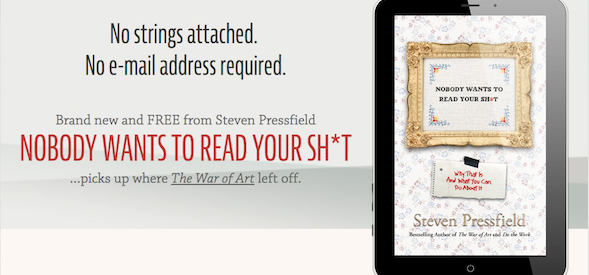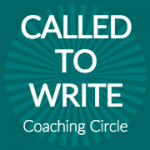Today we’re continuing my “This Writer’s Life” series, in which you get to meet some of my Called to Write Coaching Circle members and take a look inside their writing lives. If you’re just joining us, I encourage you to also check out the pieces about Rebecca, Frani, and Rick.
Today we’re joined by Foenix Ryder, a writer who found her home in Middle Grade fiction.
Meet Foenix Ryder: A San Franciscan Film Freelancer and Middle Grade Novelist
I’ve known Foenix for almost two years now. It’s been such treat to have her participating in the Circle. She’s the kind of writer whose enthusiasm, energy, and positivity is always present, even when the challenges of writing rear up. I love her determination and passion for her writing, and I’m thrilled to be helping her get her words out into the world.
Not only do we work together in the Circle, but I also have the pleasure of coaching Foenix around building her writer’s platform, something I’ll be offering in 2017 to other writers as well. I asked Foenix to tell us more about her writing and what she’s learned over the last several years — including how to break down the overwhelming tasks of a major writing project.
 What kind of writing do you do, and where are you in your writing process?
What kind of writing do you do, and where are you in your writing process?
I love Middle Grade and Young Adult stories whether they’re action, adventure, fantasy, coming of age or anything else in those genres. Naturally, that’s what I’m drawn to write: Stories where kids and teens can get immersed and relate — and hopefully be inspired and encouraged when they read.
Right now I’m on the verge of starting the third draft of my second novel. After struggling for a few weeks with a major element in my story, I realized I needed to pause to study the conventions and expectations of fantasy stories so I can further develop the world I’ve created and the rules within it.
In some ways it feels like I’m “taking a vacation” from my story and avoiding the work. But I’m reminding myself that I am and always will be developing as a writer. The stepping away to learn more about my genre and craft will only empower me to tell the best story I can. And that’s what we are all here to do.
How has your writing practice changed since you’ve been in the Circle?
Oh wow… it’s changed immensely! Before the Circle, over the course of six years, I wrote and revised my first novel. It actually still needs a major overhaul, but it was written in bits and pieces, from different places in the story, and most days it felt like I was struggling just to get words on the page.
Since joining the circle in March 2015, where I was instantly welcomed into a warm community of other writers, my practice has become almost daily. Writing my second novel while in the Circle, I feel like I finally have a rhythm. I create a daily goal, sit down and write, and then check in on the Circle site. I feel grounded and supported by my group every single day, which helped me write the first draft of my second novel in 7 months!
That’s not to say there haven’t been moments when I struggled, but now I have a space with other writers where I can voice my challenges and get encouragement. That helps keep the excitement going when things are great or get it going again when things are difficult.
I also love going to the daily writing sprints where I can jump online, say briefly what I’ll be working on, and completely focus on what I’m working on for one hour. The sprints have created a foundation for me to begin each day while also giving me a moment to think about what I would like to accomplish before diving into the writing.
What have you learned about yourself as a writer ?
I have learned so much over the past seven years I’ve been writing. For instance, I’ve learned that I do my best writing in the morning, and ideally write from 9 a.m. to 1 p.m. each day.
I’ve also learned to create a timeline/calendar for myself at the beginning of each draft, section, or when I’m starting something new to help me stay on track. It helps me see how much time I need to accomplish my goal and what I need to get done each day. I have also learned to let go of worrying if someone is going to like my stories or that I don’t write like other writers that I admire. I can only tell my stories as best as I can. And it is my duty to write these stories.
And something huge I am just starting to take in is that I have a tendency to see a project in its enormity and can get overwhelmed thinking I need to get it all done TODAY! But Jenna has helped me see the impossibility of that and instead break things down into much smaller chunks in order to achieve something in a realistic way. This has taken so much stress off of me while helping me accomplish small tasks that add up to a larger piece of the storytelling puzzle.
How much do you write, and where do you typically write?
I have a unique life as a freelancer in the film industry where I sometimes have 12-hour plus days for a few weeks and then I have a chunk of time off. When I’m off, I have time to dive into my writing and be fully present. So when I’m not immersed in “work work” I typically write four hours a day, Monday through Friday. I find it’s the perfect amount of time for me — anything past 4 hours, I just start to fizzle out.
I write in an artist’s studio in the Mission in San Francisco. It’s a private room I share with another artist inside a building where all types of artists have spaces. My half of the room is like a small apartment with a cozy couch, a soft blanket, some china lanterns, and a cool pirate ship kite I recently bought on the beach in Bali.
In order to get into my writing “dreamspace,” I must be curled up into a ball, legs pulled to my chest, body hunched over, blanket around me, with my headphones on playing the constant rumble and downpour of “Thunderstorms.” This allows me to tune everything out except the adventure movie I see inside my head while writing by hand as fast as I possibly can.
What does a successful writing day look like for you?
A successful writing day is one where I have either gotten through the section I wanted to get through, have worked out some kind of problem in my story, or where I wrote so fast, I felt energy flowing through me, writing while the story just poured from me. Those days, I walk away feeling vibrant and excited and truly feel like “I want to live that adventure!”
What’s next for you with your writing?
I’m planning to finish my novel mid-2017 and submit my manuscript to agents. Between drafts, I’ve been writing a short story which I’ll revise a few more times and submit to magazines for publication. I feel writing short stories is valuable for me in two ways: First, I get new ideas often and want to get them out into the world so this gives me an outlet for writing something in a shorter timeframe, and second, getting a few short stories published will help me build a brand by getting my stories in front of people who would enjoy reading them.
Also! I’m working regularly with Jenna to create my website and writing platform, building my writing brand around my pen name, Foenix Ryder. Having a pen name helps me maintain the energy I feel when writing my stories.
Circle Profile
Name: Foenix Ryder
Roles: Novelist, short story writer, screenwriter, film industry freelancer
Location: San Francisco, California
Genre: Middle Grade & Young Adult Fantasy
Current writing goal: 1) Finish 3rd draft of my current novel by February 2017, 2) Build my writer platform including developing and launching my website by January 2017.
Biggest writing challenge: Working myself out of the stressful mind-numbing boxes of what I “don’t know” about my story.
Biggest writing ah-ha: When it was pointed out to me that I write Middle Grade fiction, it helped me understand my writing better and also see that there is a place for the stories I love to tell and that people of all ages can enjoy them.
Go-to writing platform: Writing by hand, Scrivener
Favorite writing spot: My super cozy writing studio that has a comfy couch and a warm softy blanket.
Bio: Foenix Ryder is a Middle Grade and Young Adult storyteller based in San Francisco, California who tells fantastical stories and lives brave adventures. Foenix’s stories explore diversity, confidence, and self-discovery while taking readers on an action-packed ride.
![]()
Join the Circle: Get Your Words Into the World
 Join us in the Circle and get daily accountability and support to make your writing happen. With our special end of the year savings, you can get a whole year in the Circle for less than $100 per session.
Join us in the Circle and get daily accountability and support to make your writing happen. With our special end of the year savings, you can get a whole year in the Circle for less than $100 per session.
It’s the perfect time to join us — our next session begins on Monday, January 2nd so you can start off the new year “write”!
Registration closes on Thursday, December 29th. Find out more and join the Circle here.












 I’m leading a one-week intensive called “Fitting Writing Into Your Life: Becoming a Productive Screenwriter ” at Screenwriter’s University starting on August 11th and running for 7 days. It’s a three-part online recorded video presentation from me and plus online discussions, interaction, and support from me.
I’m leading a one-week intensive called “Fitting Writing Into Your Life: Becoming a Productive Screenwriter ” at Screenwriter’s University starting on August 11th and running for 7 days. It’s a three-part online recorded video presentation from me and plus online discussions, interaction, and support from me. 
